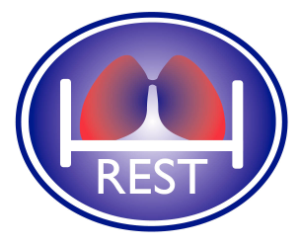| Trial Acronym | REST |
| Clinical Area | Critical Care |
| Trial Title | A pragmatic randomised controlled trial to determine whether Extracorporeal Carbon Dioxide Removal (VV-ECCO2R) and lower tidal volume mechanical ventilation in patients with hypoxaemic respiratory failure improves 90 day mortality |
| Trial Status | Analysis and Reporting |
| Trial Registration | https://www.isrctn.com/ISRCTN31262122 |
-
Recruitment
Recruitment Target 540 Date Open to Recruitment May 2016 Recruitment 412 Date Closed to Recruitment February 2020 -
Trial Design
Randomised, allocation concealed, controlled, open, pragmatic clinical and cost effectiveness trial.
Study Aim
To deliver a multi-centre clinical trial to determine whether VV-ECCO2R and lower tidal volume mechanical ventilation improves outcomes and is cost-effective, in comparison with standard care in patients who are mechanically ventilated for acute hypoxaemic respiratory failure.
-
Chief Investigator
Chief Investigator Prof Danny McAuley, Queen’s University Belfast -
Sponsor and Funder
Sponsor Belfast Health and Social Care Trust Funder National Institute for Health and Care Research

